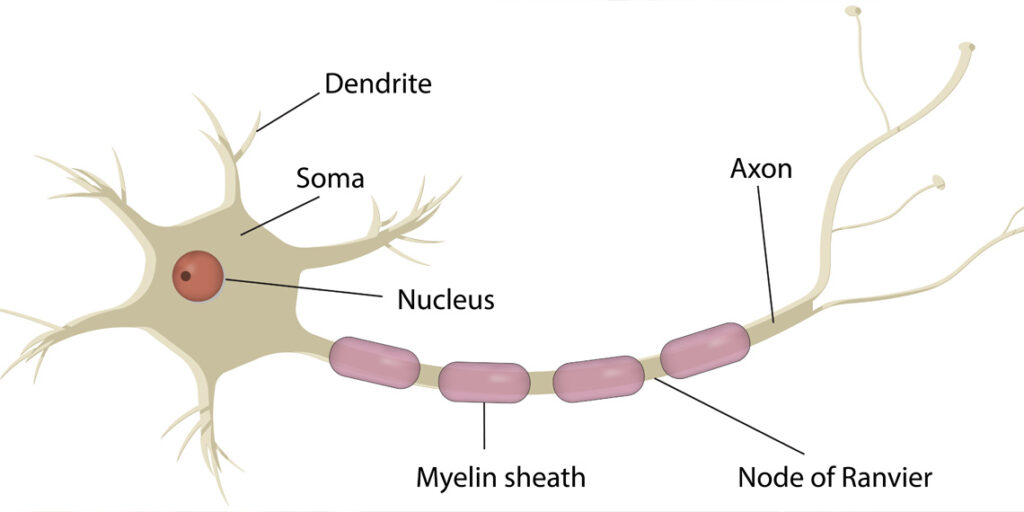The psychedelic substances 5-MeO-DMT causes a long-lasting increase in the number of tiny protrusions called dendritic spines in the brain, according to new research published in Neuropsychopharmacology. The study, which was conducted on mice, sheds light on the behavioral and neural mechanisms of 5-MeO-DMT.
Serotonergic psychedelics (such as psilocybin and LSD) have shown promise as potential therapeutics for mental illnesses like depression and anxiety. Short-acting compounds are particularly interesting because they require less dosing time, which could improve patient access to treatment. In humans, 5-MeO-DMT produces a short-lasting experience due to its rapid breakdown in the body.
“My lab started research on psychiatric drugs like ketamine and psychedelics about 10 years ago. We were motivated by how basic science and clinical research can together powerfully move a drug forward to become medicine. Specifically I believe there is a lot of potential for psychedelics as therapeutics, and that drives our interest in this topic,” said study author Alex Kwan (@kwanalexc), an associate professor in the Meinig School of Biomedical Engineering at Cornell University.
5-MeO-DMT, found in the Sonoran Desert toad, has some unique pharmacological properties. It targets serotonin receptors, specifically the 5-HT1A and 5-HT2A subtypes, similar to psilocybin but with a higher affinity for 5-HT1A receptors. However, little is known about the long-term effects of 5-MeO-DMT. To address this, the researchers conducted a study using mice.
The researchers used two assays of innate behavior, the head-twitch response and social ultrasonic vocalization (USV), to test the acute behavioral effects of 5-MeO-DMT in mice. The head-twitch response is a behavior in which a mouse rapidly moves its head from side to side. It is considered an indicator of the activation of the serotonin 5-HT2A receptors in the brain.
Social USVs are high-frequency vocalizations emitted by mice during social interactions, particularly in the presence of opposite-sex mice. By analyzing the features of these vocalizations, researchers can gain insights into social behavior.
The results showed that 5-MeO-DMT elicited acute behavioral effects that were more transient than those of psilocybin, consistent with human data. It was found that both psilocybin and 5-MeO-DMT significantly reduced the production of social USVs and changed the pattern of vocalizations. Ketamine, another drug with psychedelic properties, had a similar effect.
The duration of the 5-MeO-DMT’s effects was consistently brief across different doses tested, compared to psilocybin. 5-MeO-DMT substantially reduced social USV production in mice, even more so than psilocybin and ketamine.
The researchers also used longitudinal two-photon microscopy to examine the impact of 5-MeO-DMT on the structure of the medial frontal cortex. Similar to psilocybin, 5-MeO-DMT increased the density of dendritic spines by approximately 10-15% within a day after administration, and this increase lasted for at least a month.

However, unlike psilocybin, 5-MeO-DMT did not affect the size of the spines. The size of the spines is related to the strength of synapses, suggesting that the average strength of synapses in the medial frontal cortex is not affected by 5-MeO-DMT in the measured time period, despite the overall increase in the number of dendritic spines.
“The classic psychedelic 5-MeO-DMT, although its effect is short-acting, can still induce long-lasting neural plasticity and wiring changes in the brain,” Kwan told PsyPost.
“One surprise is how long the rewiring of neuronal connections in the brain persisted after the single dose of 5-MeO-DMT. Previously, my lab showed that psilocybin can induce related plasticity in the brain for a long time.”
“Given that 5-MeO-DMT acts in humans on the order of ~15 minutes whereas psilocybin is active for ~3-6 hours, we thought that the plasticity effects for 5-MeO-DMT may also be shorter,” Kwan explained. “But our initial prediction was not correct and it turns out 5-MeO-DMT can also induce long-lasting plasticity.”
While the study provides valuable insights into the effects of 5-MeO-DMT, there are some limitations to consider. The study was conducted on mice, which may not fully represent the complex cognitive and behavioral responses seen in humans.
“A caveat is that it is difficult to translate dosage between humans and animals,” Kwan said. “There are some formulas to convert how a human dose should be for mice, given differences in body surface area. But these are inexact – animals have different metabolism and they can process drugs differently. So it’s hard to know exactly what equivalent dose we are testing in mice. In the future, we would like to test a range of doses for how the drug may influence neural plasticity.”
“A shout-out to the non-profit Usona Institute, which synthesized and shared the compound,” he added. “Their collaboration is what made this study possible.”
The study, “5-MeO-DMT modifies innate behaviors and promotes structural neural plasticity in mice“, was authored by Sarah J. Jefferson, Ian Gregg, Mark Dibbs, Clara Liao, Hao Wu, Pasha A. Davoudian, Samuel C. Woodburn, Patrick H. Wehrle, Jeffrey S. Sprouse, Alexander M. Sherwood, Alfred P. Kaye, Christopher Pittenger, and Alex C. Kwan.
"lasting" - Google News
May 27, 2023 at 06:01PM
https://ift.tt/TpmrzJO
Psychedelic substance 5-MeO-DMT induces long-lasting neural plasticity in mice - PsyPost
"lasting" - Google News
https://ift.tt/xw9Uijp
Shoes Man Tutorial
Pos News Update
Meme Update
Korean Entertainment News
Japan News Update
Bagikan Berita Ini














0 Response to "Psychedelic substance 5-MeO-DMT induces long-lasting neural plasticity in mice - PsyPost"
Post a Comment